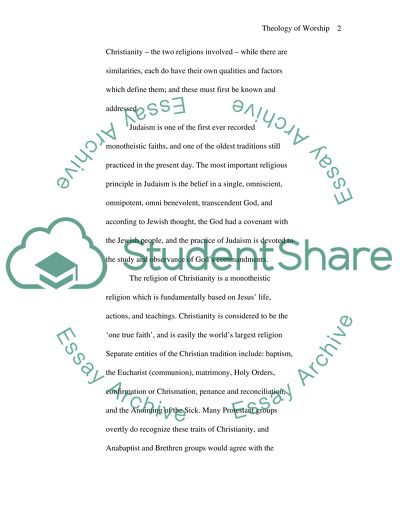Cite this document
(“Theology of Worship: The Judeo-Christian Tradition Essay”, n.d.)
Retrieved from https://studentshare.org/religion-and-theology/1508772-theology-of-worship-the-judeo-christian-tradition
Retrieved from https://studentshare.org/religion-and-theology/1508772-theology-of-worship-the-judeo-christian-tradition
(Theology of Worship: The Judeo-Christian Tradition Essay)
https://studentshare.org/religion-and-theology/1508772-theology-of-worship-the-judeo-christian-tradition.
https://studentshare.org/religion-and-theology/1508772-theology-of-worship-the-judeo-christian-tradition.
“Theology of Worship: The Judeo-Christian Tradition Essay”, n.d. https://studentshare.org/religion-and-theology/1508772-theology-of-worship-the-judeo-christian-tradition.


